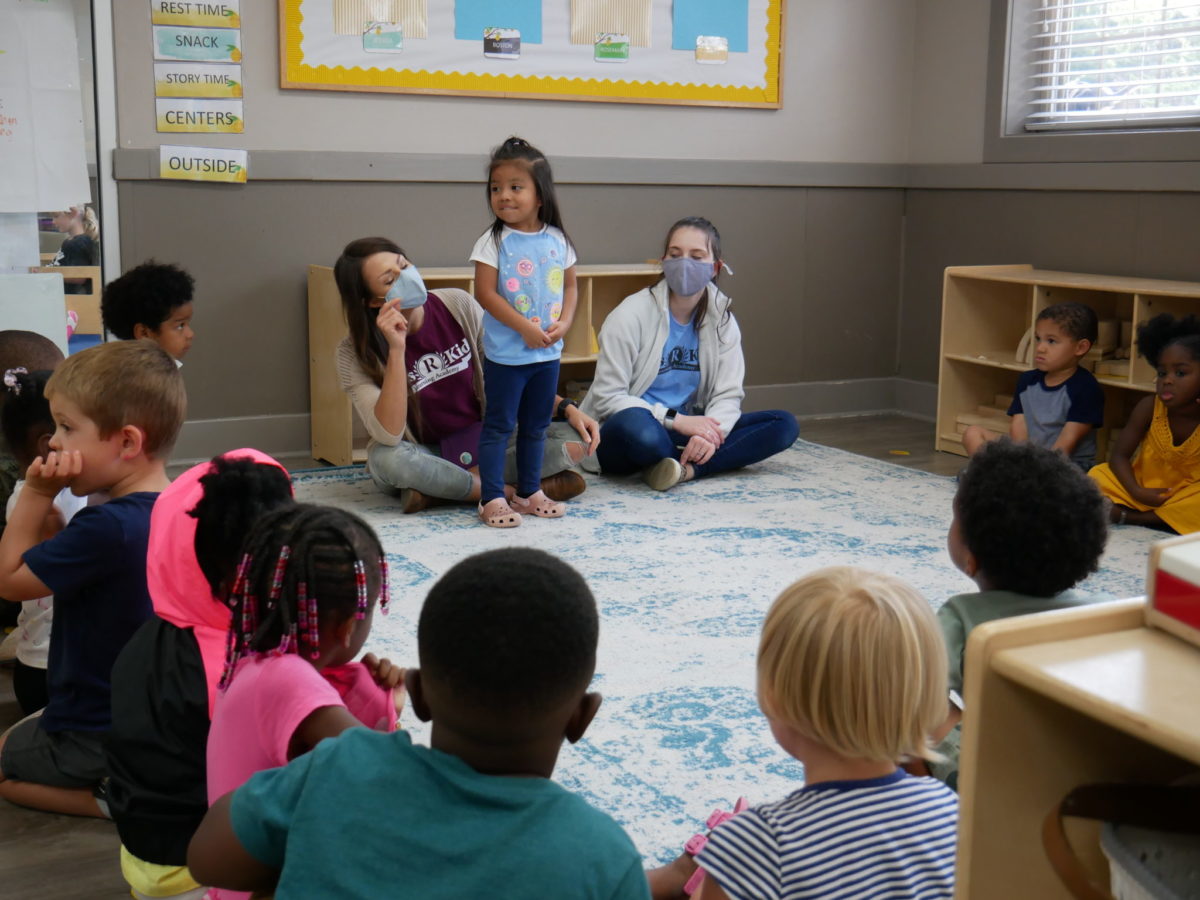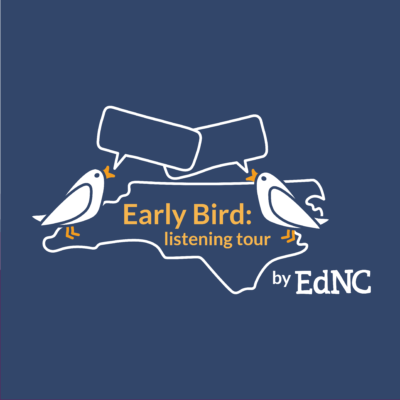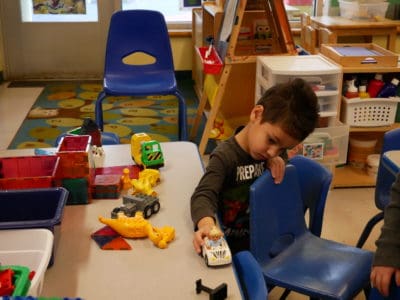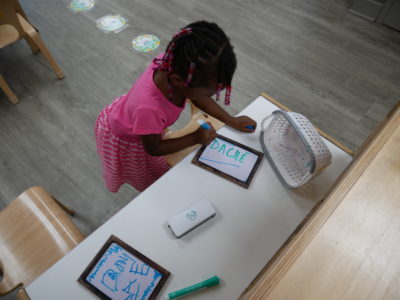
For Sharon Little, preparation of early childhood teachers must include candid conversations about racism and trauma.
“I say, ‘We are about to have some courageous conversations that before we can work with children, we have to examine our own biases and prejudices, so let’s talk about that for a minute,'” said Little, an instructor and head of the early childhood education program at South Piedmont Community College (SPCC).
Little’s program went through a two-year process starting in 2013 called SCRIPT-NC (Supporting Change and Reform in Pre-Service Teaching in North Carolina). That process helped incorporate those themes into the courses taken by prospective early childhood teachers.
Little said explicit conversations and assignments help teachers “look at things from differing perspectives.”
“So this is what you really thought about this population,” Little said, “or this is what you think is going on — not knowing that a child may be challenging because he doesn’t have any food or he didn’t get any sleep, or he’s afraid to go to sleep, or he had to sleep in a car overnight.”
SCRIPT-NC is funded by the U.S. Department of Education’s Office of Special Education Programs to work with programs at community colleges that prepare early childhood teachers.
Through a partnership with Frank Porter Graham Institute at UNC-Chapel Hill, a team of technical assistance specialists helps the faculty “assess, enhance, and redesign courses” to better prepare early educators to work with children from diverse cultural, linguistic, and ability backgrounds. The team has worked with seven programs in the past, is wrapping up the process at Durham Technical Community College, and plans to work with five new colleges in the next year.
“That’s our chance to level the playing field for all children — if you can have teachers that can support learning of each and every child in the changing demographics of North Carolina,” said Tracey West, one of the program’s investigators.
‘You are a practitioner … not a babysitter’
Camille Catlett, another SCRIPT-NC investigator, pointed to recent research in the Journal of Early Childhood Teacher Education. It found that early educators with training on teaching culturally and linguistically diverse children were more effective in doing so and were more motivated to stay in the field.
Although the program depends on federal funding that isn’t available every year and the application process is competitive, Catlett said the team is committed to being a resource to the entire community college system in whatever way it can.
The SCRIPT-NC website has free resources — from tools to enhance assignments and syllabi, to specific resources for each early childhood course. When the coronavirus pandemic forced many programs online, the team pulled together resources and created a webinar to help faculty make that shift.
“Our wish is to be part of the process of growing a well-prepared and supported early childhood workforce that can support each child and family,” Catlett said.
A 2015 study of the early care and education workforce by the Child Care Services Association found that 18% of full-time teachers and assistants at centers had left their positions in the previous year. It also found that 39% of lead early childhood teachers had received some kind of public assistance. The median hourly wage for North Carolina child care teachers is $10.62, according to May 2019 Bureau of Labor Statistics figures.
And the only requirement to work as an early childhood lead teacher is a single community college course.
“What would it be like if, as part of that course, there were an opportunity to really reflect on the … values that each participant had, to understand how those values will impact the success of young children, and to see how difference and diversity impact every decision that’s made about supporting young children and families?” Catlett said.
“So I think if that, right now, for the state of North Carolina, is the single opportunity for entrance to the field, let’s make it as powerful an opportunity as possible.”
That introductory SPCC course, EDU 119, is one of the courses Little said has improved because of SCRIPT-NC. She said assignments now explicitly address the diverse cultural and ability needs of children. Enhancing programs is one step in pushing for professionalization of the field, Little said.
“Most teachers work two jobs,” Little said. “We need to recognize the field as a field of professionalism. What I always tell students is, ‘You are a practitioner. You’re not a babysitter. You’re not that day care teacher. You are a practitioner.’
“Just like a doctor practices medicine, our students practice pedagogy. They’re educated in preparing young children for their future, and we can not take that lightly. We cannot.”
The process
Chih-Ing Lim, principal investigator of the program, said early conversations include not just community college faculty, but community partners who often sit on department advisory boards. They make sure potential employers such as public school leaders and child care facility directors — as well as program graduates — are part of the process from the beginning.
Once everyone is at the table, Lim said, they go through a “graduate of the future” activity.
“Together they think about: What would we like our graduate to look like when he or she graduates from this program?” Lim said.
At Durham Tech, early childhood instructor Marye Vance said tons of characteristics were suggested: collaborative, knowledgeable of child development and learning, culturally competent, able to manage a classroom, able to respond positively to challenging behaviors.
Lim said this activity helps participants have goals in mind once they start breaking down specific course syllabi and assignments. At Durham Tech, Lim said, addressing race and racism was something faculty and community members wanted to embed throughout their program.
In a practicum course that gives soon-to-be graduates real-world experience in the classroom, Vance said, that meant making sure students’ portfolios on developmental domains had specific questions about supporting children with diverse needs. Those children might be dual-language learners, children with learning differences, or children from different racial and cultural backgrounds.
Vance said that also meant making sure teachers used books that reflected diverse races and cultural backgrounds. As a mother of a Black son, Vance said, this was particularly important to her.
“When we were having these conversations, it was me sharing the concern that I struggle a lot with my son seeing books that reflect what he looks like, and what his world could be like,” Vance said.
Small details matter, Catlett said. She broke down an example of “beefing up” an assignment: Students must write a summary of five articles on family engagement. After assessing the assignment with a rubric of indicators, the assignment might become: Students must identify evidence-based practices and explain how to apply them in different early childhood settings.
“It’s the difference between, ‘I read it and I can summarize it,’ and, ‘I can take what’s in this and discuss how to use it in an effective and meaningful way,'” Catlett said.
The program will expand to full two-year projects with Fayetteville Technical Community College and Alamance Community College over the next year. The team also will provide a condensed version at Cape Fear, Johnston, and Mitchell community colleges.
The team has found that a small sample of participants in their most recent cohort of work had higher perceptions of knowledge after graduation when it came to instructional strategies for children with special needs.
Vance said she is taking what she’s learned from the four courses that SCRIPT-NC helped the college redesign and continuing to deconstruct and improve three additional courses in Durham Tech’s program.
“I don’t want it to end,” she said. “So we’re going to try to find a way to stay plugged in with them and continue to evolve.”






